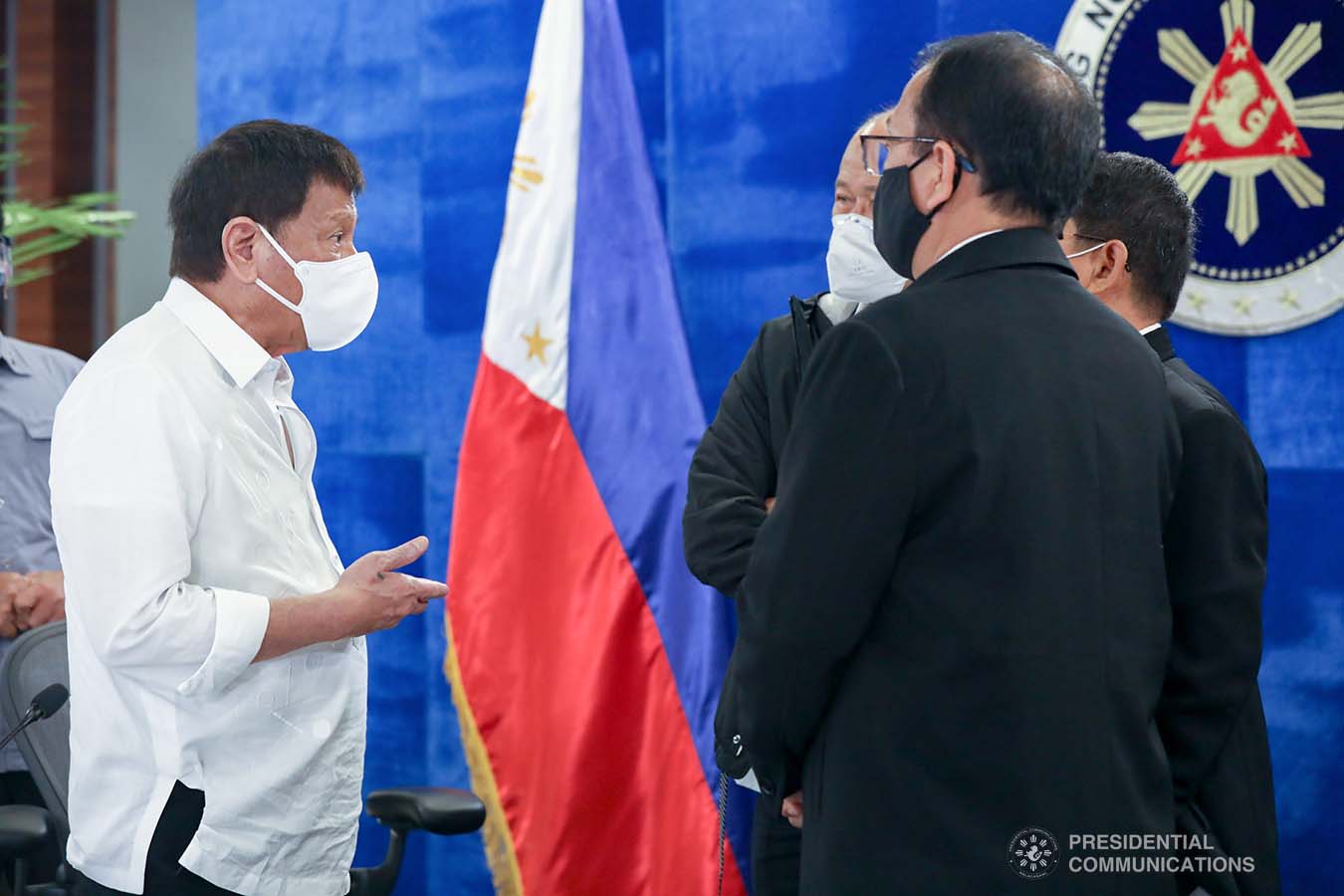
The Duterte government made significant gains in its peace-making initiatives in the past five years, particularly with Muslim and communist rebels, as well as with other armed groups, President Rodrigo Roa Duterte’s peace adviser said on Monday.
In his report to President Duterte, Presidential Adviser on the Peace Process Secretary Carlito Galvez Jr. said the government prioritized the successful implementation of the Comprehensive Agreement on Bangsamoro or CAB with the Moro Islamic Liberation Front (MILF).
The administration pushed for the ratification of the Bangsamoro Organic Law (BOL) that paved the way for the implementation of the Bangsamoro Autonomous Region in Muslim Mindanao (BARMM) and Bangsamoro Transition Authority (BTA).
It also extended the transition period of the BARMM, an important component of the implementation of the Comprehensive Agreement on Bangsamoro, said Galvez, who is also country’s vaccine czar.
Under the normalization track, both sides have successfully decommissioned more than 12,000 MILF combatants in 2019, and have been carrying out the third phase of the decommissioning process for an additional 14,000 MILF combatants.
Also part of the normalization is the establishment of the Joint Peace and Security Teams composed of the Armed Forces of the Philippines (AFP), Philippine National Police (PNP) and MILF to ensure peace and security in the Bangsamoro.
With the establishment of the National Task Force for the Disbandment of PAGs headed by Interior Secretary Eduardo Año, the national government has been working with the LGUs in BARMM to prevent the proliferation of unlicensed firearms and neutralization of private armed groups (PAGs).
So far, 16 groups in BARMM and Soccsksargen have been disbanded and around 85 firearms were confiscated, Galvez reported.
Decommissioned combatants also received transitional cash assistance from the government, the peace adviser said, adding more than P1.2 billion has been released in addition to P2.5-billion worth of social assistance packages and social services.
As a result of the peace agreement with the MILF, other armed groups such as the Bangsamoro Islamic Freedom Fighters (BIFF), Maute Group and Abu Sayyaf Group (ASG) returned to the fold of the law with the help of the AFP, PNP and Office of the Presidential Adviser on the Peace Process (OPAPP), Galvez said.
Another significant development in the government’s peace efforts is the renewed collaboration between the government and Moro National Liberation Front (MNLF) for the implementation of the 1996 Final Peace Agreement.
Both sides have put up separate GPH-MNLF Peace Coordinating Committees under MNLF Chairman Nur Misuari and Muslimin Sema. The committees were tasked to plan the implementation of the remaining provisions of the Final Peace Agreement with the assistance of the Organization of Islamic Conference (OIC).
In the fight against communist insurgency, the government has been conducting localized peace engagements under the National Task Force to End Local Communist Armed Conflict (NTF-ELCAC), through community consultation and local peace dialogues with former members of Communist Terrorist Group.
“Patuloy naman ang ating suporta upang maprotektahan ang mga kabataan laban sa recruitment, pagbibigay ng tulong pinansiyal sa mga former rebels at pakikipag-ugnayan sa iba’t ibang sektor upang matugunan ang kanilang pangangailangan,” Galvez said.
With regard to the peace process with Rebolusyonaryong Partido ng Manggagawa ng Pilipinas/Revolutionary Proletarian Army/Alex Boncayao Brigade, around 727 members underwent decommissioning process under the Three-Year Normalization Program.
Under the program, the former rebels were given livelihood assistance, health insurance, and skills training. Many of them also became members of the AFP, with others joining the Citizen Armed Forces Geographical Unit (CAFGU).
On OPAPP’s Social Healing and Peacebuilding or SHAPE Program, the government focuses on vulnerable groups such as women, youth, and indigenous people. This is through the National Action Plan on women, peace and security, and the establishment of National Action Plan on Youth Peace and Security, the conduct of peace-building project in line with Human Fraternity Document signed by the Pope.
Separately, under the PAMANA Program, the government has extended more than P55.1 billion socio-economic services such as farm-to-market roads, water system and livelihood projects to communities affected by armed conflict.
Some 156 road projects, including 12 bridges, are being constructed under the PAMANA program. Many of these infrastructure projects have been completed.
Galvez said that President Duterte’s leadership has inspired and enabled OPAPP to achieve these milestones. Since 2017, the country’s peace process helped establish stability in domestic peace and order situation.
“Despite the challenges brought about by the pandemic, the peace process in the country continues to be implemented,” the President’s peace adviser said.
“The implementation of the peace agreement is transforming former combatants and their families into peaceful and productive individuals, and conflict-affected communities to peaceful, developed and resilient communities.”
The Duterte administration, he added, has established a strong foundation in the implementation of the signed peace agreement for the next administration to build upon and sustain the gains of peace, particularly in Mindanao. PND

